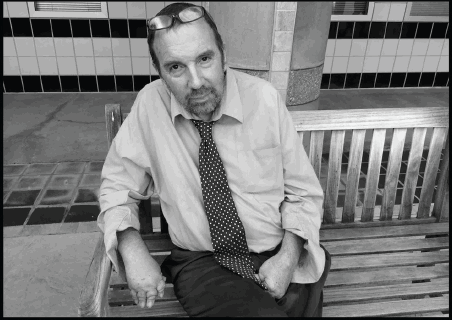
Stephen Cullenberg (1953-2021)
It is with deepest sadness that we mark the death of our comrade, friend, mentor, and longest-serving editorial board member, Stephen Cullenberg, who passed away on February 28, 2021.
Steve attended graduate school at Princeton and University of Stockholm and received a Ph.D. in economics from the University of Massachusetts Amherst. He taught at various institutions before joining the Economics Department at the University of California Riverside in 1988. He was part of the cohort that helped create and establish Rethinking Marxism. In those first years, while the journal self-published, he participated in the myriad visible and invisible tasks of that process (going to the printer, stuffing envelopes, labeling and carrying them to the post office, handling subscriptions, self-financing an academic journal, and so on). He also helped the chief editor at the time (Jack Amariglio) as the journal became more popular and obtained its first academic press contract, engaging in negotiations and comparing contract possibilities. Steve was the journal's longest-serving editorial board member, having served continuously since its inception in 1988.
His theoretical contributions to the fields of Marxian political economy, economic knowledge and methodology, and international political economy ranged from his first book, The Falling Rate of Profit (Pluto Press, 1994), where he masterfully recast the long-standing Marxian debate on the concept to his inspiring essay, "Socialism's Burden: Towards a 'Thin' definition of Socialism" (published in 1996 in Rethinking Marxism vol. 5, no. 2), where began his revision of class analysis through the typology of class sets, to many books, among which are the coedited volumes Marxism in the Postmodern Age (with Antonio Callari and Carol Biewener; Guilford, 1994), Postmodernism, Economics and Knowledge (with Jack Amariglio and David Ruccio; Routledge, 2001), and Sublime Economy: On the Intersection of Art and Economics (with Jack Amariglio and Joseph Childers; Routledge, 2009). His thinking and writing influenced the work of many scholars of the Association of Economic and Social Analysis, including J. K. Gibson-Graham as they wrote The End of Capitalism (As We Knew It), as well as the work of many Indian Marxist scholars, including his collaborators Anjan Chakrabarti and Anup Dhar, with whom he cowrote World of the Third and Global Capitalism (Worldview Publications, 2013). As his friend and colleague, former editor of Rethinking Marxism S. Charusheela, noted on a memorial site, "He treated third world scholars as colleagues and theorists, not just people applying metropolitan theory to marginal 'case studies.' It is the rare scholar who does not merely write about the third world, but actually collaborates extensively with scholars who reside in, work, and build careers in the third world." So much of his work was in collaboration with his friends, colleagues, and comrades, reflecting his intellectual penchant for collectivity.
As Steve's academic credentials rose, his commitment to the journal was unwavering: he became chair of the Economics Department at the University of California Riverside and also chair of the Physical Education Department, and then he became dean of the College of Humanities, Arts, and Social Sciences, UCR's largest college, leading over 300 faculty members in 20 departments. As dean he mentored and supported generations of younger radical scholars in many disciplines, but he continued to serve on the journal's board even though he clearly did not do it for career-advancing purposes. As the journal's first editor Jack Amariglio remarked, "He did it because he always liked to have his hand in things that were bubbling, especially when it came to the group Association for Economic and Social Analysis and for the project it represented." He was always willing to nurture and support others in the collectives of which he was a part, generously helping to advance their writing, scholarship, politics, and their careers.
We are grateful for Steve's many, many contributions to Rethinking Marxism over the years, to authors, readers, and the journal's editors. One of those contributions was his chairing of Rethinking Marxism's International Conferences. These were major events that drew scholars from all over the world, and Steve chaired conference committees for most of those Conferences, again doing so much behind-the-scenes labor to help bring them to life.
We cherish many fond memories of Steve on our editorial board, and one thing that stands out for us is how deeply principled he was on what the purpose of a radical journal should be. He believed we should spend every penny we had for the project of promoting new and politically applicable forms and theories of Marxism. He was funny and in a remarkably good-natured way took the ribbing of close friends in meetings. He drew to him generations of postcolonial thinkers and academics because, in his bones, he was a different kind of academic. In today's parlance, he was an "ally" or, by the same token, a "race traitor" —willing to use his privilege to make space for other voices, and willing to dismantle systems of capitalist oppression. We owe him the deepest debt of gratitude for what he did for this journal, for Marxism, and for the collectives he nurtured. He will be deeply missed.
The Editors
